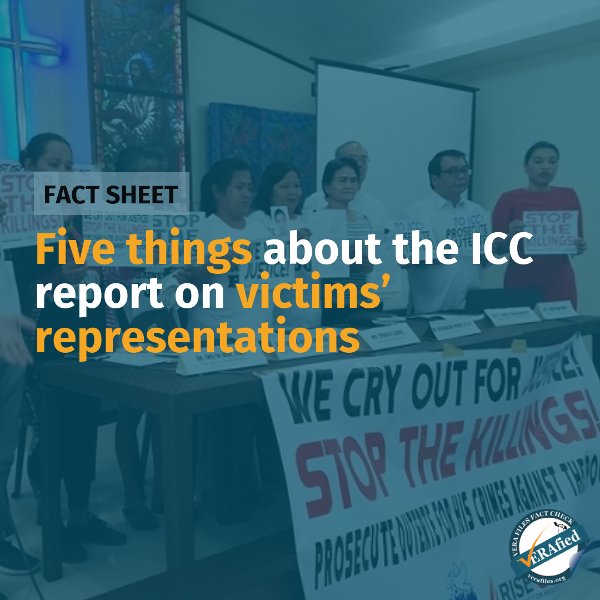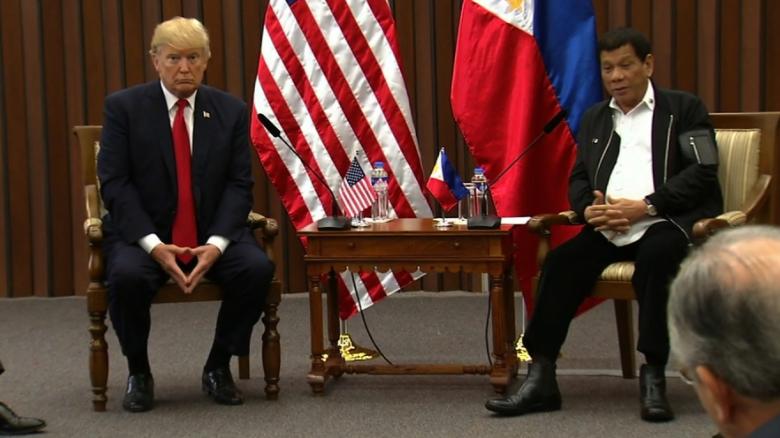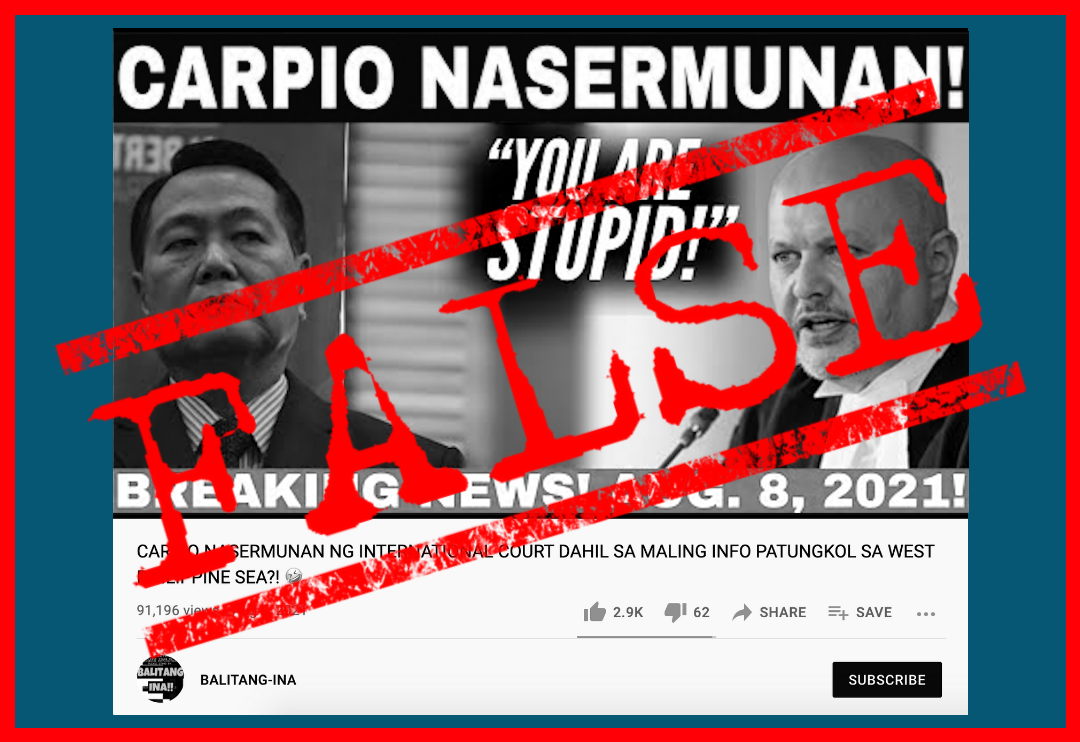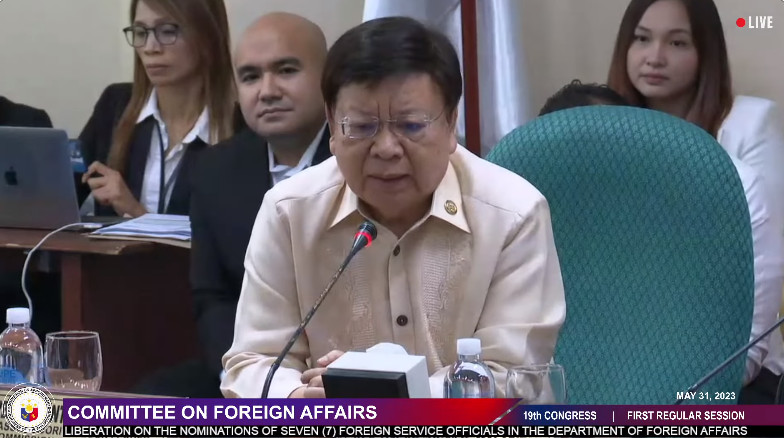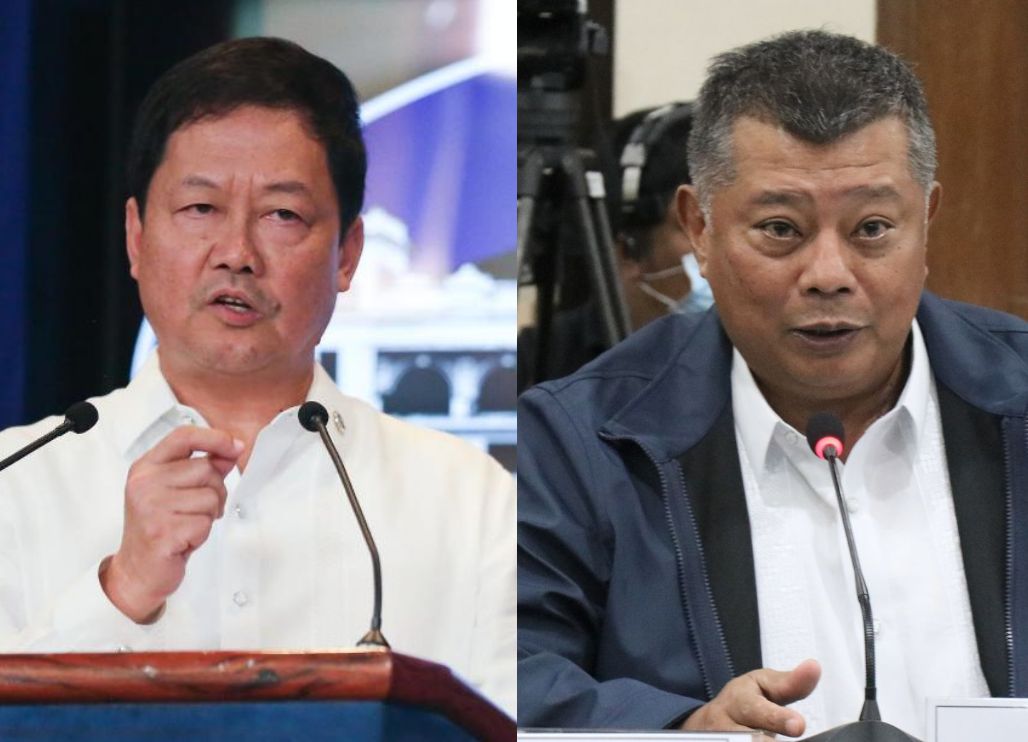Families of persons killed in anti-drug operations under the Duterte administration’s war on drugs regained hope for justice following the release of a report focused on assistance for them by the Victims Participation and Reparations Section (VPRS), an independent office of the International Criminal Court (ICC).
The report, released on Aug. 27, stated that families and drug war survivors “overwhelmingly support” the request of former ICC Prosecutor Fatou Bensouda to allow a full investigation of the bloody anti-drug campaign of President Rodrigo Duterte. Lawyer Kristina Conti, counsel for Rise Up for Life and for Rights, which provides legal assistance to at least seven families of drug war victims, said the report has given her clients a “spark of hope” to obtain justice.
“During the victim[s] representation stage … there were many whose eyes had dimmed at the prospect of Duterte [staying] longer in power, at the reality that nothing has been or likely to be done about the killings,” Conti said. “The ICC report shows the spark of hope they have now, that someday, there will be an end to all this and justice for them all [will be served].
Lawyers and human rights groups, such as the National Union of People’s Lawyers and Human Rights Watch (HRW), likewise welcomed the report.
HRW Asia Deputy Director Phil Robertson said the report will certainly encourage other victims and their families to step forward and tell their stories. But Robertson said they must be protected “from any sort of harassment or retaliation by the Duterte government” when they surface.
How is the VPRS report relevant to the quest for justice over the drug-related killings and other abuses committed under Duterte’s drug war? Here are five things you need to know about the report on victims’ representations of the ICC:
1. The representations of drug war victims will be used to grant requests for investigation.
The submission of “representations” is part of the procedure in the ICC that allows victims to express their “views, concerns and expectations” to the judges about the pending request of the court’s Office of the Prosecutor (OTP) for a full investigation of Duterte’s drug war.
“This is an integral part of the process, structured as it is to ensure victims’ rights [to] representation. This is the first active opportunity for victims to make their voices heard in the preliminary investigation procedure,” international law expert Romel Bagares explained when asked for a comment.
From June 15 to Aug. 13, VPRS received 212 representation forms from survivors and families or representatives of those killed or injured. However, only 204 of the forms, collectively or individually sent through email or online, were considered relevant.
On Aug. 27, the VPRS transmitted to the ICC judges the 204 pertinent representations and its preliminary assessment report on the victims’ answers. “The ICC judges will carefully analyze all information received and will issue their decision on the OTP request in due time,” it explained.
The VPRS said the 204 forms represent approximately 1,530 individual victims and 1,050 families. However, the office did not clarify how many of the 1,530 victims were dead or survivors of the drug war.
According to the VPRS victim’s booklet, the ICC defines a victim as someone who suffered harm as a result of a crime punishable by the court. It may include victims of sexual violence, children, persons with disabilities, or elderly persons, as well as organizations or institutions with properties dedicated for charitable or humanitarian purposes, among others, that sustained harm.
As most victims of the drug war are already dead, the victim’s booklet provides that family members who suffered from harm, such as emotional trauma or material loss, due to the killing of their relatives are also considered victims.
The VPRS clarified, however, that the representations will neither be used as evidence in the court nor shared with the prosecutor.
The process of collecting representations was launched a day after Bensouda disclosed on June 14 that she had sought “judicial authorization” from the ICC Pre-Trial Chamber I (PTC I) to proceed with the investigation of alleged crimes against humanity in the Philippines from November 2011 to March 17, 2019. (See ICC begins accepting information on Duterte’s drug war – Vera Files)
Bensouda’s request came after she wrapped up the three-year preliminary examination into the drug war. She alleged that killings, torture, and other crimes targetting suspected drug personalities were already rampant in the Davao region, where Duterte is from, since 1988 or long before he became president in 2016. (See Gov’t officials, police conspired to carry out Duterte’s war on drugs — ICC prosecutor – Vera Files)
2. Majority wants the ICC to authorize an investigation.
Of the 204 relevant representations, 192 or 94% of the victims agreed that the ICC judges must authorize an investigation into the matter.
According to the VPRS, the “main motivating factors” for their position include the desire to have their voices heard, bring the perpetrators to justice, and launch an investigation by an “impartial international court. Other reasons cited were to end impunity, prevent such crimes from happening again, find out the truth about what really happened, and clear the names of the innocent.
“The thousands of Filipino deaths during Duterte’s reign of terror […] have destroyed so many lives. I stand for them, I stand for my brother. You are our last hope ICC. Please help us investigate on (sic) this and hold those people involved accountable. Thank you,” wrote one of the victims quoted in the VPRS report.
The VPRS said it believes that “fear of reprisals and re-traumatization” forced victims in five representations to refuse an investigation. Among the concerns they raised involved security, inconvenience of having a young child to take care of, and lack of knowledge about the actual incident.
Seven other representations did not give clear answers on their position on the proposed investigation.
Ruben Carranza, reparations and war crimes tribunals expert at the International Center for Transitional Justice (ICTJ), said victims’ representations provide the ICC prosecutor and the PTC judges a “view” of what they, including those unable to submit their representations, “expect as justice, apart from the punitive form of justice, (that) a criminal court can give.”
Drawing from a previous experience working with the VPRS, Carranza said the office wants “to be prepared to address victims’ needs that might emerge in the course of the ICC proceedings.”
Other tasks delegated to the VPRS include assisting victims to organize their legal representation or apply for reparations.
3. Victims cite murder, torture falling under crimes against humanity
Drug war victims, who are mostly men, want the ICC prosecutor to investigate alleged crimes against humanity that inflicted psychological and physical harm, among others, on them. Such crimes were allegedly committed by the police; unidentified “riding-in-tandem” individuals wearing civilian clothes, bonnets and masks to hide their identities; and other unnamed personalities.
The VPRS assessed that murder, imprisonment, enforced disappearance, torture, and other inhumane acts were the most reported crimes. Only a few cited attempted murder and sexual violence, such as rape.
However, it noted that sexual violence could be “severely underreported” because victims fear the “possibility of death.” It said some female victims were forced to have sexual intercourse or give in to sexual favors, also known as “palit-puri” (sex for freedom) or “palit-katawan” (rape for freedom), in exchange for their liberty.
The VPRS said female relatives of those killed, seen as collateral victims, are “largely ignored by the [g]overnment and deprived of its services.” In a forum about the ICC in June, women’s rights expert Socorro Reyes said 60,000 to 100,000 women and children became widows and orphans as a result of the killing of 12,000 to 20,000 persons in the drug war.
All 204 representations reported that the crimes resulted in psychological and social harm to victims. Others cited physical and material harm, as well as loss of educational opportunities and deprivation of liberty. Other victims raised concerns about the ineffectiveness of the Philippine judicial system, reparations for damages, and the social and cultural impact of the drug war.
“There is a new social norm now that is brainwashing and is gaining acceptance by many Filipinos today as a result of not only this physical but also culture war on drugs. That is, if you were a victim of [extra judicial killing], you deserved to die…,” the report quoted one victim as saying.
4. What happens next?
Both the victims and the ICC prosecutor are waiting for the decision of the PTC judges. If they rule in favor of the prosecutor, Karim Khan, Bensouda’s successor, will start gathering evidence and identifying suspects in the killings and other crimes in the drug war. Khan may request the court to issue arrest warrants or summonses to bring the identified suspects to the ICC headquarters in the Netherlands for confirmation of charges and possible prosecution based on the court’s legal procedures.
5. Malacanang describes the report as “opinion”
Palace Spokesperson Harry Roque dismissed the ICC report as based only on the opinion of drug war victims.
“[W]e consider the Public Redacted Registry Report on Victims’ Representation submitted to the ICC as more of the opinion of victims wanting the ICC probe rather than erosion of support of the Filipino people,” Roque said in a statement on Aug. 30.
Roque repeated his inaccurate claim that the Philippines is not obliged to cooperate with the ICC following the country’s withdrawal from the Rome Statute.
His assertion contradicted the March 16 ruling of the Supreme Court on petitions assailing Duterte’s unilateral withdrawal, stating that the country remains “covered and bound” by the statute even after the pullout took effect in March 2019. (See VERA FILES FACT CHECK: Duterte, Panelo spew three false claims about ICC – Vera Files)
As of July 31, the government has reported 6,181 deaths during drug operations since July 2016. However, rights groups, including United Nations High Commissioner for Human Rights Michelle Bachelet, have estimated that the actual death toll could be “more than triple” the government figure.
Sources
International Criminal Court, Public Redacted Registry Report on Victims’ Representations, Aug. 27, 2021
International Criminal Court, Information for victims – Republic of the Philippines, Accessed Aug. 31, 2021
International Criminal Court, Public redacted version of “Request for authorisation of an investigation pursuant to article 15(3)”, 24 May 2021, ICC-01/21-7-SECRET-Exp, June 14, 2021
Communication with international law expert Romel Bagares, Aug. 30, 2021
Communication with war crimes tribunals and reparations expert Ruben Carranza, Aug. 30, 2021
Communication with Public Interest Law Center lawyer Kristina Conti, Aug. 30, 2021
Communication with Human Rights Watch Asia Deputy Director Phil Robertson, Aug. 30, 2021
Presidential Communications Operations Office, On the Public Redacted Registry Report, Aug. 30, 2021
Rise Up for Life and for Rights official Facebook page, Accessed Aug. 30, 2021
International Criminal Court, Victim Representation Form, Accessed Aug. 30, 2021
International Criminal Court, Statement of the Prosecutor, Fatou Bensouda, on her request to open an investigation of the Situation in the Philippines, June 14, 2021
International Criminal Court, VPRS Victim’s Booklet [ENG], Accessed Aug. 30, 2021
International Criminal Court, Rome Statute
Supreme Court, G.R. No. 238875/G.R. No. 239483/G.R. No. 240954. March 16, 2021 [Date Uploaded: 7/21/2021], March 16, 2021
Real Numbers PH, #RealNumbersPH, Aug. 28, 2021
(Guided by the code of principles of the International Fact-Checking Network at Poynter, VERA Files tracks the false claims, flip-flops, misleading statements of public officials and figures, and debunks them with factual evidence. Find out more about this initiative and our methodology.)
